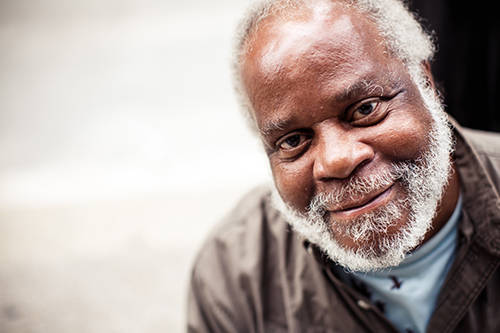
Telephone and Cable
Patients have the right to the private use of a telephone in the nursing center upon request. This may be accomplished by the use of a center’s portable phone or some centers may also allow patients to have personal telephones installed in their rooms at the patient’s expense. Availability and expense of cable television services may vary from center to center and should be discussed directly with each center.
Personal Property and Valuables
Patients are usually permitted to bring personal articles from home such as, a favorite chair, pictures or television. Articles brought from home should meet safety requirements as outlined by the nursing center and cannot interfere with the patient’s movement in the room. Possible safety hazards to note would include throw rugs, electric blankets and extension cords. Consideration should be made when sharing a room with another patient. If necessary, most nursing centers provide a location for patients to store documents, jewelry and other valuables (other than money) for safekeeping. The Patient should expect to have reasonable access to such property based on normal business hours and hours as set by the nursing center. Policies regarding valuables should be verified with each center prior to admission.
Management and Personnel
The patient has the right to manage his or her financial affairs. However, if the patient wishes to have the nursing center manage their funds, they should request this in writing. This is typically covered in the admission process. Once requested, the nursing center should hold, safeguard, manage and account for the personal funds of the patient deposited with the nursing center.
Physician and Pharmacy
The patient should have the right to choose his/her attending physician and pharmacy. Typically, nursing centers have relationships with physicians who serve their patient population and pharmacy contractual relationships to ensure availability of care in a timely manner. However, a patient should be allowed to choose another physician or pharmacy as long as the physician/pharmacy complies with regulations and meets guidelines that govern these services in the nursing center. To promote patient safety and the safety of others, most nursing centers do not allow any drugs or medication (including alcoholic beverages and nonprescription medications) to be stored in the patient's room without the attending physician's order.
Flu Vaccine, Pneumonia Vaccine and Tuberculosis Testing
It is a regulation that the flu vaccine be administered annually to all patients unless contraindicated. The pneumonia vaccine is administered every five years up to age 65 and then one time after reaching age 65. TB skin test should be conducted on every patient at the time of admission unless the patient has had a previous positive reaction to testing. In the event the patient has had a positive reaction in the past a chest x-ray and physicians evaluation for Tuberculosis will be required. This is to ensure appropriate treatment for the patient as well as to ensure the protection of other patients in the nursing center.
Podiatry and Dental Services
Nursing centers may offer access to podiatry and dental care at the nursing center. This is dependent upon the availability of podiatrists and dentists in the area that are willing to provide their services on site at a nursing center. You will need to inquire with each individual center regarding the availability of these services.
Voting in Local, State and National Elections
Many patients have exercised their right to vote in the community for many years and may wish to continue. All centers should have a program in place through their social services department that will allow anyone who wishes to register and arrange for an absentee ballot to do so.
Clinical Services
- 24 hour skilled nursing care
- Pharmacy services available 24 hours
- Medication reviews and medications are by a registered pharmacist.
Therapy Programs
- Physician Services – Care and treatment will be overseen by a physician of each patient’s choosing; consulting physicians will assist as needed. A pharmacist also reviews individual medication regimens regularly.
- Restorative Program – Improves both physical ability (such as joint range of motion and general mobility) and mental function (such as memory improvement, comprehension and problem-solving skills). Whether through group or individual sessions, our patients are encouraged to achieve and maintain their highest, individual level of functioning.
- Rehabilitation Services – Our center is dedicated to providing outcome oriented Physical, Occupational and Speech-Language Pathology services. Rehabilitation utilizes an interdisciplinary approach, working with physicians, nurses and other professionals to design individualized Rehabilitation programs for those we serve. Specialized Rehabilitation personnel assist patients in achieving their highest level of physical and cognitive functions.
Physical Therapy strives to improve strength and mobility so that patients regain independence with various functional tasks such as getting in and out of bed, walking and managing environmental barriers such as stairs.
Occupational Therapy assists in regaining the ability to engage in activities of daily living (ADL’s), such as eating, grooming, bathing/dressing, and performing homemaking tasks independently.
Speech-language Pathology addresses swallowing and communication tasks, rebuilding the functional skills necessary to effectively express basic wants /needs, listen /understand, problem solve, and safely swallow.
- Short or Long Term Rehabilitation – Skilled Physical, Occupational, and Speech Therapy services offer comprehensive rehabilitation programs in an effort to meet individualized patient needs. These services may include a single service of Physical, Occupational and Speech therapy, or any combination of the services. Skilled treatments may be individualized to patient needs in accordance with their neurological, orthopedic, and medical/surgical diagnoses.
Visitation
Nursing centers should recognize the patient’s right to receive visitors. Typical visiting hours are from 8:00 a.m. to 8:00 p.m. in order to respect the rights of all patients. However, visitation hours may vary from center to center. Critically ill patients should be allowed to receive visitors at any time. Immediate visits by relatives should be permitted with the patient’s consent. Children should be welcomed and encouraged to be accompanied by an adult at all times. It is also helpful to limit the number of visitors in a room at one time.
Laundry
Laundry is typically a standard service provided by each nursing center. Prior to admission, it is a good idea to label all personal clothing with the patient’s name, using a permanent marker, laundry marker or sewn in label. To ensure the patient’s privacy their name should be visible on the inside of the garment only. Some centers allow a patient’s family to assume responsibility for personal laundry. If the family would like to do the patient’s personal laundry, they should inquire with the center regarding the center’s individual policy on this.
